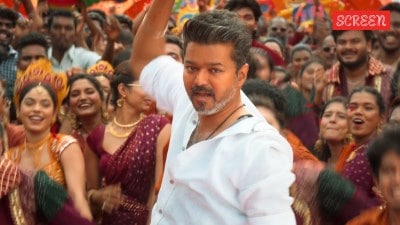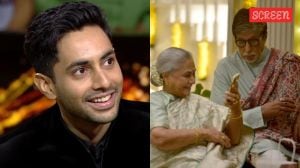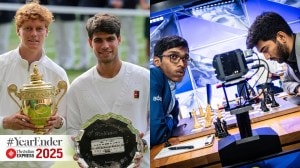The young 038; the old boys146; network
The highly emotive debate on reservations raises an interesting question. Has there ever really been a level playing field for the youth of ...

The highly emotive debate on reservations raises an interesting question. Has there ever really been a level playing field for the youth of India? The obvious villain, the well entrenched caste system, is not the only impediment in ensuring that all of us are treated at par, though it is no doubt the most pernicious.
Some of those who are today so vocal about the selfishness of the anti-reservation lobby have themselves benefited from a more subtle and insidious class system. It was our colonial masters who demonstrated to us how well connected people have doors automatically opened for them through 8216;8216;the old boy network8217;8217;. The Brits set up elite institutions, which prided themselves on being the Oxfords and Cambridges of the East, where admissions were based not on marks alone but highly subjective interviews where a person8217;s pedigree, accent, social standing and connections were all taken into account.
Many a bright student with the requisite marks has been unfairly denied a seat on the basis of sham interviews at these prestigious educational institutions and many an undeserving candidate has been admitted for the same reasons. Experience has shown that that those of our elite who affect holy horror about the use of influence are most likely to subtly slip in a word in the right quarters about their offspring when it comes to the crunch. It is no coincidence that for decades the children of India8217;s power elite 8212; in the days when power was associated with the upper echelons of the bureaucracy and Left intelligentsia and not the Laloos and Mayawatis 8212; always managed to get into such institutions and generally ended up winning most of the scholarships to study abroad. One8217;s daddy8217;s friends usually happened to be on the interview board. Interestingly even our Communist parties in the early days had a soft corner for those with the right blood lines and the Oxbridge culture.
If the old boy network is on the decline today, it is partly because the best and brightest students now have their sights fixed on America rather than England, and economics and cutting edge technology rather than the
classics and history. And the egalitarian Americans are more concerned with grades and performances or simply the ability to pay the high fees, than interviews and references. Mahatma Gandhi is generally regarded as a dysfunctional father for bending over backwards in ensuring that his sons got no benefit from his pre-eminent position. In this aspect, Pandit Nehru is the preferred model. Though he personally abhorred nepotism, somehow a disproportionate number of his qualified family members occupied eminent positions. Today, there is actually a section of society which feels some sympathy for Pravin Mahajan8217;s grouse that his influential brother could have given him more of a leg up.
Some months back, a leading newsmagazine carried a cover story on the best and brightest of the younger generation. Practically, every one of the outstanding youth selected in the fields of politics, music, cinema and business happened to be the child of someone important in the same sphere. Nepotism, caste links, communal or regional loyalties surface at every strata of the job market. Guptas and Sharmas have an overwhelming presence in some departments of the Delhi Municipal Corporation. The New Delhi Municipal Committee for many years recruited its lower staff only from the Amethi belt. The CPWD8217;s gardeners in the Capital are largely Yadavs.
The odds are additionally stacked against our aspiring youth because of other peculiarly Indian factors, such as the vagaries of marking systems in mass examinations, institutionalised cheating, disparate grading systems in different state level school board examinations, corruption, and political clout. Some years back the daughter of a former OBC chief minister was admitted into a prestigious medical college even though she had nowhere near the cut-off marks required. She topped her class even though she rarely attended classes. Mercifully she has never put her medical knowledge to practical use.
Many of us who are opposed to extending reservations to all spheres are not opposed to affirmative action per se, merely pointing out that to ensure a level playing field for our future generations requires not brute legislation which divides society but more meaningful reform.
coomi.kapoorexpressindia.com
- 01
- 02
- 03
- 04
- 05































